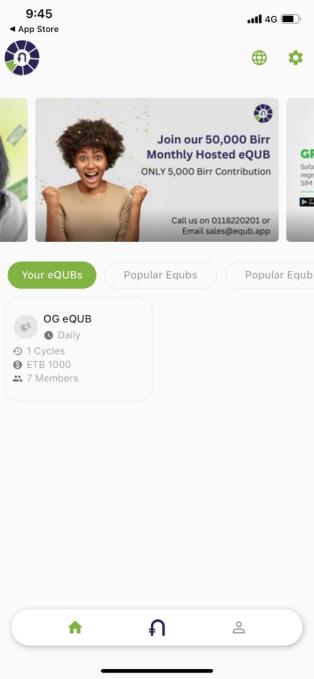Ethiopian startup eQub is the winner of the fintech pitch-off at 4YFN 2024, Mobile World Congress’ startup event. TechCrunch was on the ground in Barcelona to meet its business development lead Nahom Michael this week.
The startup’s name is an Amharic word referring to a local form of peer-to-peer credit, Michael said. An Equb is a group of people who join forces to save money, which is then distributed on a rotating basis.
Known as a rotating savings and credit association, or ROSCAS, this financing modality is common in many countries, especially across Africa, where it is used both for personal and for business loans; but it has yet to enter the digital age.
That is the opportunity that eQub wants to tap. Starting with an app, it targets users among the growing number of Ethiopians who have bank accounts and mobile phones, but limited access to credit.
Making an Equb digital is an improvement in itself: For eQub members with bank accounts, they can add money without having to go to an ATM. For eQub administrators, it also means not having to deal with piles of cash.
Convenience aside, eQub’s points system is also a way for users to build credit history by showing that they are consistent savers. In the long run, it could help eQub expand into BNPL, regular loans and more; but for now, it is sticking to the original ROSCAS model: no collateral and no interest. Instead, it makes money by charging a transaction fee when money gets taken out.
In the traction slide of its pitch, Michael told the jury and audience that the app had attracted some 25,000 users since its launch, translating into 200 saving groups. He also showed TechCrunch that the app gives users two options: Either join an existing group, or join a curated one generated by the startup.

Image Credits: eQub
In both cases, eQub is taking measures to make sure savings are secure. For self-managed groups, it does detailed KYC, which is already more than traditional, offline Equbs. This makes sense: these people usually share personal ties, which isn’t the case with curated eQubs.
But, Michael explained to TechCrunch via text, requirements “become rigorous” for such groups, “including Digital National ID, Employment letter or business license for proof of consistent income, 3 – 6 months bank statements, a digital agreement is also signed that allows us (eQub), to pursue legal action in case of such instances.”
Michael said that the startup now has more than 10 banking partners, an approach that can also help limit risks thanks to data sharing. There could be more to come: “recently, Michael said, “insurance companies have offered to create a special limited insurance policy for saving groups where defaults occur due to the death of an eQub member.”
In addition, the startup has 20 corporate partners as part of its B2B2C strategy: If employees of a company already participate in Equbs, the app now gives the employer a way to make this digital.
One of its next targets will be gig workers, a major component of the workforce in sub-Saharan cities. eQub hopes to reach 1 million of these users by 2025. But while there’s built-in virality to the app, faster growth will require more marketing, which is one of the reasons why the company is seeking to raise a $500,000 pre-seed round. The visibility it got at MWC may help it with this, but also with another goal: expanding into other countries in the near future.

